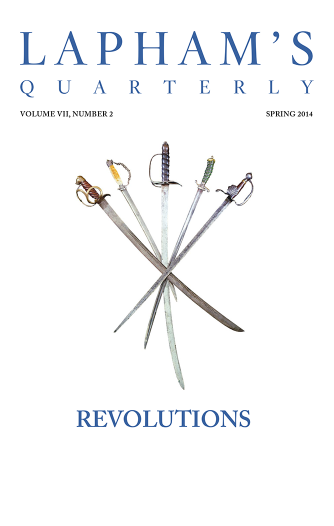As a general rule, slaves do not come to the quarters for either breakfast or dinner but take their “ash cake” with them and eat it in the field. This was so on the home plantation, probably, because the distance from the quarter to the field was sometimes two and even three miles.
The dinner of the slaves consisted of a huge piece of ash cake and a small piece of pork, or two salt herrings. Not having ovens, nor any suitable cooking utensils, the slaves mixed their meal with a little water to such thickness that a spoon would stand erect in it, and after the wood had burned away to coals and ashes, they would place the dough between oak leaves and lay it carefully in the ashes, completely covering it—hence the bread is called ash cake. The surface of this peculiar bread is covered with ashes to the depth of a sixteenth part of an inch, and the ashes, certainly, do not make it very grateful to the teeth nor render it very palatable. The bran, or coarse part of the meal, is baked with the fine, and bright scales run through the bread. This bread, with its ashes and bran, would disgust and choke a Northern man, but it is quite liked by the slaves. They eat it with avidity and are more concerned about the quantity than about the quality. They are far too scantily provided for and are worked too steadily to be much concerned for the quality of their food.
The close-fisted stinginess that fed the poor slave on coarse cornmeal and tainted meat, that clothed him in crashy tow linen and hurried him on to toil through the field in all weathers—with wind and rain beating through his tattered garments—that scarcely gave even the young slave mother time to nurse her hungry infant in the fence corner, wholly vanishes on approaching the sacred precincts of the great house, the home of the Lloyds. There the scriptural phrase finds an exact illustration: the highly favored inmates of this mansion are literally arrayed “in purple and fine linen” and fare sumptuously every day! The table groans under the heavy and blood-bought luxuries gathered with painstaking care, at home and abroad. Fields, forests, rivers, and seas, are made tributary here. Immense wealth and its lavish expenditure fill the great house with all that can please the eye, or tempt the taste. Here appetite, not food, is the great desideratum. Fish, flesh, and fowl are here in profusion. Chickens of all breeds, ducks of all kinds, wild and tame, the common and the huge Muscovite. The graceful swan, the mongrels, the black-necked wild goose; partridges, quails, pheasants, and pigeons. Beef, veal, mutton, and venison of the most select kinds and quality roll bounteously to this grand consumer. The teeming riches of the Chesapeake Bay, its rock, perch, drums, crocus, trout, oysters, crabs, and terrapin are drawn hither to adorn the glittering table of the great house. The dairy, too, probably the finest on the Eastern Shore of Maryland—supplied by cattle of the best English stock, imported for the purpose—pours its rich donations of fragrant cheese, golden butter, and delicious cream to heighten the attraction of the gorgeous, unending round of feasting. Nor are the fruits of the earth forgotten or neglected. The tender asparagus, the succulent celery, and the delicate cauliflower; eggplants, beets, lettuce, parsnips, peas, and French beans, early and late; radishes, cantaloupes, melons of all kinds; the fruits and flowers of all climes and of all descriptions, from the hardy apple of the North to the lemon and orange of the South, culminated at this point. Baltimore-gathered figs, raisins, almonds, and juicy grapes from Spain. Wines and brandies from France, teas of various flavor from China, and rich, aromatic coffee from Java all conspired to swell the tide of high life, where pride and indolence rolled and lounged in magnificence and satiety.
From My Bondage and My Freedom. Having escaped from slavery in 1838, the author changed his surname from Bailey to Douglass to elude capture. He spoke at an antislavery convention in Nantucket in 1841, his speech so effective that he became an agent for the Massachusetts Anti-Slavery Society. Douglass published his first autobiography in 1845, in part to silence skeptics who claimed that no ex-slave could be so articulate.
Back to Issue

